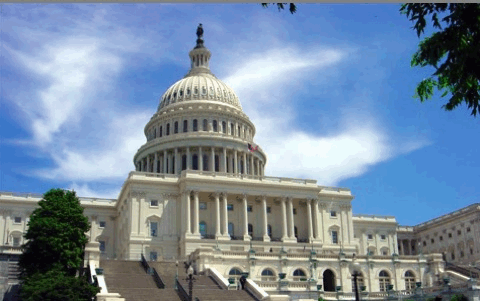Key words :
climate change,
tax
,climate change
,global warming
,energy policy
,carbon tax
,politics
,barack obama
,jim mulva
,gas
Tariffs in the Climate Bill
30 Jun, 2009 11:18 pm
A number of people have written to ask why I haven't commented on the climate bill. There are two reasons. First, the House and Senate versions are very different, so the final form may not resemble the version the House just passed. Second, I haven't had the time to read through much of it.
 |
While I know the goal here is to favor renewable energy, what happens if it can't fill a void left if the new bill discourages domestic production? The void will be filled by imports. Prices will also rise, so some of the void will be filled by conservation. But in order to keep the playing field level, I really liked the idea proposed by Jeff Rubin: If you place a carbon tax on domestic production, you can place a carbon tariff on imports. This idea was discussed in my review of his book Why Your World Is About to Get a Whole Lot Smaller: Oil and the End of Globalization.
I hadn't heard any discussion of this until today. From Steven Mufson of the Washington Post:
Obama Praises Climate Bill's Progress but Opposes Its Tariffs
President Obama yesterday said that the House took an "extraordinary first step" by passing a climate bill on Friday, adding that he hoped it will "prod" action by the Senate and predicting that the legislation could make renewable energy "a driver of economic growth."
But he said he hopes that Congress will strip out a clause that would impose a tariff in 2020 on imports from countries without systems for pricing or limiting carbon dioxide emissions.
Obama went on to suggest that there were other protections built in that will keep the playing field level. I would like to know what those are. I can understand how tariffs would do it (although enforcement raises some sticky questions). But I have heard enough double-speak on energy policy that I want to see the fine details of how the playing field will be kept level.
Make no mistake: This bill is a tax increase. That's the basis for the political opposition. But I have long advocated a tax increase on fossil fuels to slow the rate at which we are using them up (and to make renewables more competitive). So I don't oppose the bill on the basis that it is a tax increase. On the other hand I can't say that I endorse it, because I haven't read it. I certainly believe there are more efficient ways of raising carbon taxes than this. I still think - perhaps naively - that my proposal to tilt the tax code toward higher fossil fuel taxes and lower income taxes would be more attractive than this.
Originally published on R-Squared Energy Blog
Key words :






